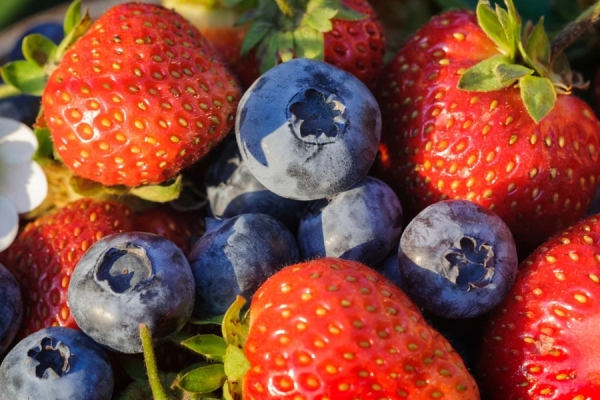Flavonoid-rich foods lower blood pressure via gut bacteria
Berries might offer protection against a range of health conditions. Jovo Jovanovic/Stocksy
- Red wine and fruits such as berries, apples, and pears are rich in antioxidants called flavonoids, which may protect against cardiovascular disease, diabetes, and cancer.
- A new study has found that people who consume the most flavonoids tend to have lower blood pressure.
- The diversity and composition of the gut microbiota — which is the community of microorganisms that live in the gut — appeared to play a role in the association between flavonoids and blood pressure.
- This discovery could help explain why flavonoids have such variable cardiovascular benefits for different individuals.
Dietary advice from healthcare professionals can seem joyless, typically requiring people to stay away from a list of treats that scientists have found to be “bad” for health.
Major exceptions to this rule are flavonoid-rich foods and drinks, which include dark chocolate, blueberries, and strawberri
